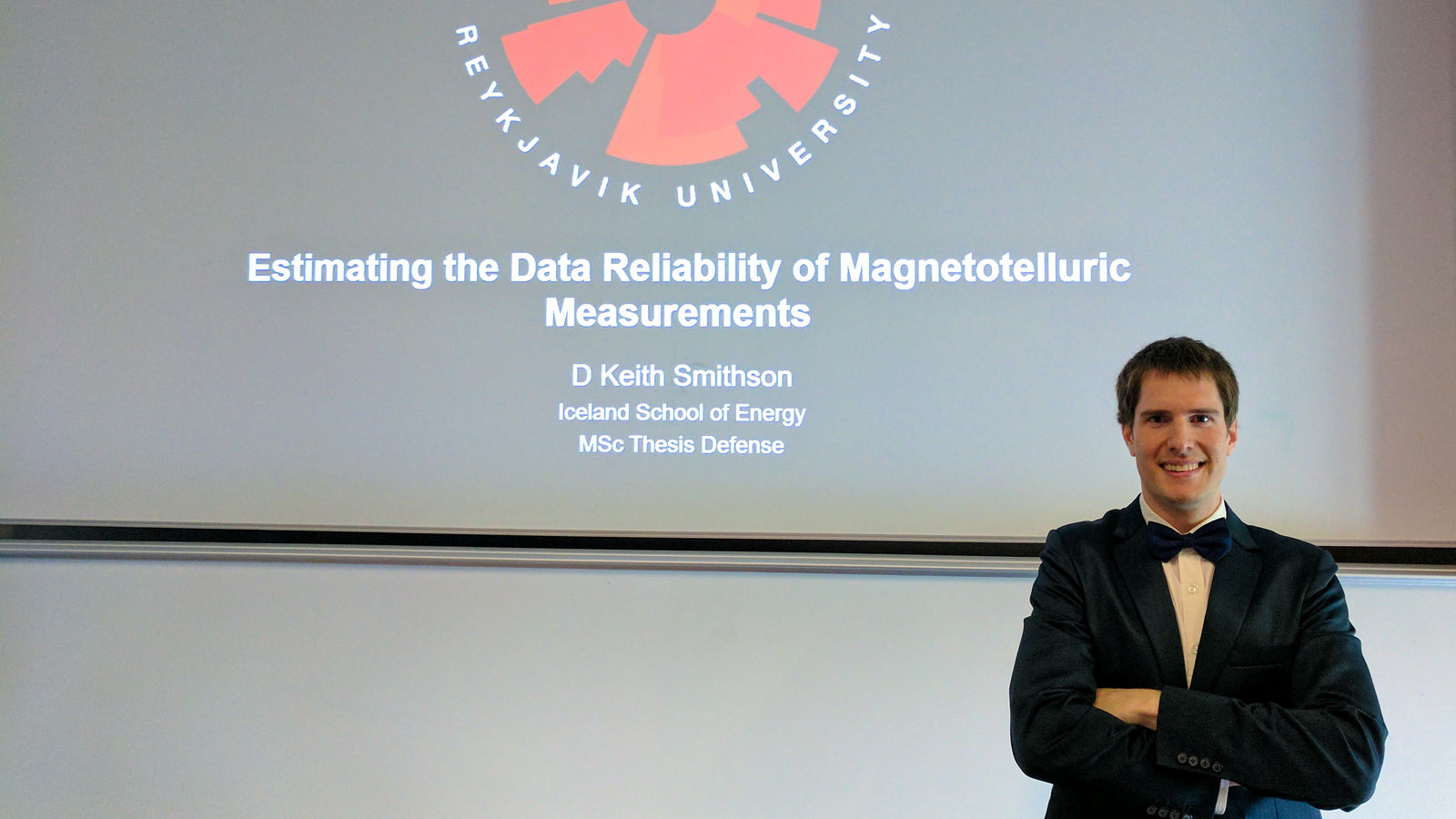MSc Thesis: Estimating the Data Reliability of Magnetotelluric Measurements
D. Keith Smithson successfully defends his master's thesis
REYKJAVIK, June 1 – Master's candidate of Sustainable Energy Engineering, D. Keith Smithson, has just successfully delivered his master's thesis project, estimating the data reliability of magnetotelluric measurements. Throughout his work, Keith was supervised by Dr. Egill Júlíusson and Dr. Hlynur Stefánsson here at Reykjavik University, along with Samuel Perkin, a PhD candidate working with Landsnet.

Keith concisely describes his expansive and multidisciplinary masters thesis work beginning with an overview of risk in geothermal drilling, value-of-information theory and analysis, ending with a description of state-of-the-art inversion methods used to process the geophysical data.
With this foundation set, Keith goes on to challenge standard assumptions made regarding the treatment of error and the correlation between fitness and likelihood and as such sets relevance for his novel algorithm. At this point, he introduces his algorithm, Iterative Complexity Addition (ICA), indicating it's proposed use which is to test the hypothesis of these challenged assumptions and provide information about the data reliability of solutions returned from an under-determined inverse problem.
For testing, the algorithm was applied to the inversion of magnetotelluric (MT) data from four synthetic models and existing data from the Þeistareykir geothermal field in Northeast Iceland. The results indicate that there is not a strong correlation between fitness and likelihood, as was previously assumed. Keith explains, stating that the best-fit model as a solution yields an average likelihood of 48.49% while ICA's selection of most-likely solution yields an average likelihood of 63.59% when considering the total depth of the model.
When Keith limited the scope of interest to a typical drilling range of 3 km depth, the best-fit likelihood is shown to be 53.77% while ICA's most-likely solution has a data reliability of 68.71%. The presentation of these results and the algorithm design were treated with a discussion of algorithm strengths, weaknesses, and potential improvements.
Keith tied all of his work together, indicating clearly the value of data reliability by stating that an improvement in data reliability can be manifested as improvement in drilling success rates.
Congratulations Keith on an excellent thesis defense!
